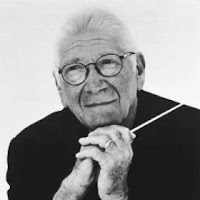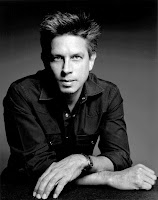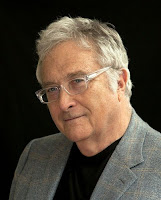By Vikram Lakhanpal
A few years ago, sportswriter Bill Simmons wrote a brilliant
article called “The Action Hero Championship Belt,” (http://grantland.com/features/the-action-hero-championship-belt/)
where he broke down who was the biggest action hero over the course of 50
years. As an homage (or ripoff, depending on how much cynicism you put in your
coffee this morning), I’m translating the idea to film music, assessing which
composers dominated their given eras. Instead of action films, I chose the
fantasy genre, which I believe has offered the richest variety of music. Before
I recount the history of the Fantasy Score Championship Belt, a few ground
rules:
1. Horror counts, most of the time. Adventure
and superheroes do on a case-by-case basis. Science Fiction doesn’t, unless I
decide the film is “soft” enough to be considered science fantasy. Example:
Star Trek doesn’t count, Star Wars does. It’s very subjective. When in doubt, I
ask myself: is the supernatural at work? And if not, do animals that don’t
normally talk speak? If the answer to both is no, it’s not fantasy.
2. We’re starting from 1977, because that’s
nearly 40 years of material to cover. Plus, my sources tell me that on the
first day, God created Star
Wars.
3. Quality matters most, but quantity is a huge
factor too. Sustained periods of excellence clinch the Belt. Popular appeal
plays a role, but a small one.
4. (Paraphrasing from Simmons’ original article)
During a period in which a composer possesses the Belt, I’d have been
completely HYPED to hear something new from the composer, reliant only on
name+bare-bones plot. For example: John Powell, pirates. John Williams, giants.
Michael Giacchino, space. Sold, sold, and sold.
5. No religious-based films. I’m steering clear
of that minefield. Most films based in ancient mythologies won’t count either.
6. Pure bombast in your music isn’t going to win
you the title belt, but it’s probably not going to register in the negative
column most of the time.
7. To clarify point 1, I’ll make subjective
calls when convenient to my narrative.
8. I did my homework for this, but I may not
have heard every score I name.
____
PRE-MODERN ERA LEGENDS:
MAX STEINER
BERNARD HERRMANN
MIKLOS ROSZA
Before the Belt was something to
compete for, these musical giants penned the iconic fantasy music of the Golden
and Silver Ages. Steiner arguably created the genre (and the film score) with King Kong, Rosza made his mark
with 1940’s The Thief of
Baghdad and 1973’s The Golden Voyage of Sinbad.
But Herrmann ruled the 50s and 60s with classics including The 7th Voyage of Sinbad, Journey to the
Center of the Earth, its sequel The
Mysterious Island, Jason
and the Argonauts, and several more.
____
Notable Works: Star Wars, Superman, The Empire Strikes Back
I think I’ve literally said
everything I can about these three scores. But I start here because the
modern era of blockbusters was ushered in with these films, which in turn
sparked the swell of fantasy films in the 80s, as we’re about to see. And each
of these films (plus Jaws and Close
Encounters; I didn’t forget you, Spielberg!) doesn’t reach their heights of
success without Williams’ music to march and fly and flourish and marvel
alongside us. Wow, I kept something about John Williams under 150 words, it’s a
miracle!
Biggest Contender: Jerry
Goldsmith
Goldsmith had a very fruitful
period from 1976-1979, anchored by the Oscar-winning The Omen and its sequel, as well as the
unsettling Magic and schlock-fest The Swarm. If Star Trek: The Motion Picture counted as fantasy, Goldsmith may have
held the belt instead of Williams. However, the remainder of Williams’
incredible decade would shift towards other genres, allowing the Fantasy Title
Belt to go to…
____
Notable works: The Final Conflict
Goldsmith’s score for the
original Omen film was built around a phenomenal
choral piece called “Ave Satani” (yes, literally “Hail Satan”), which was so
powerful that it received its own Oscar nomination for Best Original Song.
While it again played a prominent role in the score for Damien: Omen II, Goldsmith
abandons it entirely for the third installment, The Final Conflict. And yet he
still knocked it out of the park. It’s a lot like how last season, the Denver
Broncos were so good on defense, they started a barely-competent Peyton Manning
at quarterback and still won the Super Bowl. Goldsmith
sidelined his superstar piece and wrote a brilliant horror score that stands on
its own.
Contenders: Alex North wrote the
avant-garde Dragonslayer,
the Bill Belichick of fantasy scores; either you think it’s bold and utterly
brilliant, or you think its reputation is tarnished for all the rules it breaks
____
Notable works: Conan the Barbarian, Conan the Destroyer, Flesh+Blood
Poledouris’ trio of sword and
sorcery scores were hugely influential on the sound of the modern epic set in
faraway lands at faraway times. Heck, you can even hear music inspired by him
in Total Recall and How
to Train Your Dragon 2. These epics, Conan
the Barbarian in particular,
feature an impressive array of colossal writing for percussion, choir, and most
of the rest of the orchestra. But it’s Poledouris’ ability to embellish this
brutality with an elegant flair that really elevates his work in this period.
The nimble waltzes of “Theology” and “The Orgy” balance perfectly with the
mixed-meter primitiveness of both Conan’s main theme and the brutal identity
for Thusula Doom’s riders. Imagine that sense of style applied to something as insipid as 300 or the Clash of the Titans remake, and you realize what a unique
touch Poledouris brought to these scores.
Biggest Contender: Jerry
Goldsmith
Goldsmith came very close to a
mega-run between his Omen sequel, Poltergeist, The Secret of NIMH, Gremlins, Supergirl, and his
semi-rejected (depending on where you saw it) score to Legend. Dang, why did I give
this stretch to Poledouris? Oh, right, because none of those Goldsmith scores
has been transcribed for organ: https://www.youtube.com/watch?v=3e5eu-NMeUw
Other Contenders: John Williams
wrapped up his epic decade with E.T., Return of the Jedi, and two Indiana Jones scores. Unfortunately, the first one
is totally sci-fi/adventure, Indy is disqualified by rule 5 (regardless
of how sloppily said religions are depicted), and one Star Wars score twixt two Conans does not a Belt Defense
make. Meanwhile, Trevor Jones followed Excalibur up with his impressive The Dark Crystal, and Joe
Hisaishi made a splash with his first collaboration with Hayao Miyazaki for Naussica of the Valley of the Wind.
Also noteworthy is Elmer Bernstein’s trio of underrated scores: Heavy Metal (seemingly forgotten by time), Ghostbusters (overshadowed by the classic song),
and The Black Cauldron (lost in the deluge of great fantasy
films and scores of the time).
____
Notable works: An American Tail, Willow, The Land Before Time, Field of Dreams
Now how about this for a title
run? After several years outputting solid work in the sci-fi and action genres,
Horner finally seized the Fantasy Belt with this blend of music for adorable
Don Bluth animation, terrifying monster masks, and Kevin Costner. What’s most
interesting about this run is the diversity of the styles Horner puts on
display here. He went wistful and Russian for An
American Tail, broke out the world instrument soloists for Willow, drowned you in
symphonic majesty for LBT,
and then tenderly played the heartstrings with his Americana sound for Field of Dreams. He basically
could beat you any way you wanted. Oh, and get 2 Oscar noms out of the lot too
(And a third for Aliens).
And yes, Field of Dreams is totally a fantasy movie.
Biggest Contender: Christopher
Young
If we made a separate Horror
Title Belt, it would have lots of Goldsmith and a lot of Chris Young, who
established himself as one of the all-time great horror composers with his two
aggressively dissonant and fiendishly brilliant Hellraiser scores. It takes a special talent to
make a score like Hellbound:
Hellraiser II as enthralling
and alienating as it is.
Other contenders: John Williams
(sorta) returned to the Superman franchise with themes for The Quest for Peace and also scored The Witches of Eastwick, while
Howard Shore made his first appearance with scores for David Cronenberg’s
horror films The Fly (more on the sci-fi side) and Dead Ringers.
Now let’s take a breath and pull
our calendars out. Timing is going to play a huge role in the next few years,
so I’ll try and keep you up to speed. Horner’s Field of Dreams was released in theaters April 21,
1989. Horner’s reign came to a definitive end on June 23, 1989, when he was
usurped by a young (36 is on the young side!) upstart composer by the name of…
____
Notable work: Batman
I’ve already waxed plenty of
poetic about this score, so I’ll keep it brief. Following a few years of
smaller projects (including the prior year’s Beetlejuice),
Elfman dropped this fiery bomb of Gothic majesty. With a large slate of
projects lined up for 1990, the former Oingo Boingo singer looked poised for a
sustained period on the throne. However, his rule only lasted until November
13, 1989, when another young (okay, 40) upstart composer made waves (not
apologizing for that pun) by resuscitating Disney animation. Who, you ask?
Please, don’t be silly, we all know…
____
Notable work: The Little Mermaid
With a right uppercut and a fin
to the kidneys, Menken (and lyricist Howard Ashman, let’s give him his due
credit too) took the world by hurricane (hey, these are too easy) with
instantly iconic songs and swam away with a couple Oscar statues. Disney immediately
went to work putting more animated films into production and securing Menken’s
magic for future films. In the meantime, however, nothing could be done but to
cede the Belt on December 17, 1989 back to…
____
Notable works: Nightbreed, Darkman, Edward Scissorhands
Elfman, eager to properly
establish himself in the industry, took on a number of projects, most of which
contained undertones (or fairly overt tones) of melancholy darkness. While the
first two, Darkman in particular, relied on the similar
choir and brass driven style of Batman,
his reunion with Tim Burton on Edward
Scissorhands yielded one of
the high watermarks of Elfman’s career with a score that slices and dices the
listener’s emotions with a tender lack of impunity. “But Vikram,” you insist,
“All of these are 1990 scores. Why did you start in December ’89?” Because that
date was the debut of a long-forgotten little
animated show Elfman wrote
the title theme for.
Yeah, good luck getting that one
out of your head now. Elfman joked recently that, despite numerous films to his
name, his tombstone will probably say “Wrote The
Simpsons Theme,” even though
he thought it up in a single car ride. That’s right, he was so good in this
period that he wrote his most iconic piece of music while driving home from a meeting.
A taciturn 1991 from Elfman led to belt returning inevitably to…
____
Notable works: Beauty and the Beast, Aladdin
Some of you may look at this back
and forth and wonder “Why not just say Elfman for this whole period? Menken’s
success was based on his songs, not his scores.” Let me answer with a few
questions: Can you name any of those songs? Yes you can, and now you’ve
completely forgotten The
Simpsons theme because you
have “Be Our Guest” running through your head now. Now it’s “A Whole New
World.” Now you’re back to “Beauty and the Beast.” Another question: Did Danny
Elfman’s output win so many Oscars that the Academy created an entire separate category
for comedy and musical scores just
so someone other than him could win? No, that’s Alan Menken’s output we’re
talking about. I think they do that after Oscar statue #5 or 6. Another
question: which movie was so good, it was the first animated film to be
nominated for BEST PICTURE? Oh, yeah, Beauty
and the Beast. One
last question: If you’ve seen that film, watch the first half of this trailer.
If you got goosebumps, that’s all
Menken’s original score. Quick tangent: Menken is scoring this upcoming remake
of Beauty and the Beast,
and he’s on record saying he’ll be utilizing songs and score from the original.
This might be the first time a composer has scored both original and remake,
and it really makes me wonder why they’re remaking it if Disney seems to be
doing everything the exact same, except with Emma Watson. Wait, never mind,
found the answer.
In a four year span,
Elfman-Menken became the Ali-Frazier, the Bird-Johnson, the Brady-Manning of
fantasy film music. The two’s collision course appeared to conclude in 1992
when Menken’s Aladdin proved better and more successful than
Elfman’s Batman Returns.
However, Elfman made the Disney musical a game at which two could play, swiping
the Belt away once more in 1993.
____
Notable work: The Nightmare Before Christmas
What’s this? What’s this?
Stop-motion everywhere! What’s this? The Elfman still sings fair! What’s this?
I can’t believe my ears And Menken’s lost the Title Belt on his own turf?
What’s this!
Don’t worry, I won’t do the rest
of the song. Just know that if I didn’t decide to detail every punch and
counterpunch of this riveting time for the Championship Belt, I likely would
have given it to Elfman for the whole period for matching Menken’s prowess at
the musical and outclassing him in his other scores.
Other contenders: James Horner
delivered another solid 1-2 punch in ’91 with Fievel
Goes West and The Rocketeer, the same year
John Williams dropped Hook,
a.k.a. Harry Potter and the
Aural Prequel. Elfman was not the only one to deliver good music for
Batman, with Shirley Walker’s Mask
of the Phantasm offering a
worthy score in the Bat-canon. Meanwhile, Polish composer Wojciech Kilar gave
us the first grandly dissonant vampire score of the decade in Bram Stoker’s Dracula.
____
Notable works: Interview With the Vampire, Batman Forever
There’s an alternate universe in
which George Fenton’s score for Interview is not rejected because the powers
that be realize it’s perfect for the film, Fenton wins an Oscar, and becomes
the most prolific composer of the next 20 years. However, we live in the
universe where his score was rejected, prompting the young (okay, 40 again)
upstart Goldenthal, fresh off of polarizing scores for Alien3 and Demolition
Man, to whip together some of his best, most haunting music in a mere three
weeks, snagging an Oscar nom in the process. My dislike for Batman Forever has been documented, but if champions
were determined by which things I liked more, Roger Federer probably would have
4 more Grand Slams and the Kansas City Chiefs would have just won their 12th straight Super Bowl.
Other contenders: The herd
thinned a little bit in this period, but Patrick Doyle impressed with his
shamelessly melodramatic Mary
Shelley’s Frankenstein, while Hans Zimmer inspired a generation with his
score to The Lion King.
____
Notable works: Toy Story, James and the Giant Peach
…Wait, that’s it? What happened
in the mid-90s? Well, John Williams hit a dry spell after his brilliant 1993 (Jurassic
Park and Schindler’s List), Alan
Menken’s animated musicals pivoted towards a more historical bent (Pocahontas and The
Hunchback of Notre Dame, specifically), Jerry Goldsmith could have easily
claimed the belt with First
Knight, a medieval film about the Arthurian legend. But when Wikipedia says
“the film is noteworthy…for its absence of magical elements,” I can’t even
pretend to vouch for it as a fantasy film. Meanwhile, James Horner was having
one of the most fruitful periods of production, with a killer batch of scores
written between 1994 and 1998…but the majority of those hits came firmly in the
historical epic or drama genres. The irony is that 1995 was an incredibly
strong year for film music; the problem is that Hollywood apparently ditched
the fantasy genre in favor of sci-fi action for a few years.
Enter the unlikely Belt holder
Randy Newman. Like many of Menken’s scores earlier in the decade, Toy Story relied heavily on several songs
ranging from solid to poignant to the instant classic “You’ve Got a Friend in
Me.” Now, Toy Story was released the same year I was born,
so I may have an incurable nostalgia bias for this film, but there’s an
impressive sense of magic throughout the score. Combine that with the more
cohesive James and the Giant
Peach in ’96, and suddenly
Randy is the most popular member of the Newman clan in the world. (And no, Paul
Newman isn’t related.)
Biggest Contender: James Horner
While scores like Legends of the Fall, The Spitfire Grill, and Apollo 13 towered over his other scores in this
timespan, he still whipped up a few fantasy gems, notably Casper and Jumanji.
Other contenders: Also firing on
multiple cylinders was Randy Edelman with his duo of The Indian in the Cupboard and the exuberant Dragonheart, as well as Nigel
Westlake’s charming score for Babe.
____
Notable work: Princess Mononoke
We’re going by the Japanese
release date (it premeired in the US in 1999) because 1. This is Hisaishi’s
best opportunity to claim the Belt, 2. I (and probably a few other people)
would be upset with myself if I barely acknowledged him and his music for iconic
Miyazaki films, and 3. I’ve got few other options for the time period. Much
like in the last few years, the most popular and best scores were mostly in
other genres, notably David Arnold’s temporal cousins Independence Day and Tomorrow
Never Dies, as well as Horner’s iconic Titanic.
But let’s talk about Hisaishi. Mononoke is all kinds of great, arguably among
his best. And that’s saying something.
Biggest contender: David Newman
I very nearly gave him the Belt
for The Phantom and Anastasia,
but Newman had minimal involvement with the songs for the latter, whereas
previous Belt holders had direct involvement with the song content.
Other contenders: Don Davis first
began to catch the ears of score collectors with Warriors of Virtue, a film I
only know of because Don Davis scored it, and House
of Frankenstein, an NBC miniseries. Trevor Jones had an excellent run in
television with Loch Ness, Gulliver’s Travels, and the
powerful Merlin.
Meanwhile, Williams offered a solid sequel with the genre-straddling The Lost World, Goldenthal
returned to Gotham City one last time for Batman
and Robin, a classic good score/bad film combination, and Danny Elfman
wrote a terrific main theme for Men
in Black…with which the rest of the score could not keep up. We hit a dry
spell here. Who could possibly pull us out of this rut? What’s that I hear?
Eastern tones and a thunderously epic orchestra? My goodness, it’s…
____











No comments:
Post a Comment